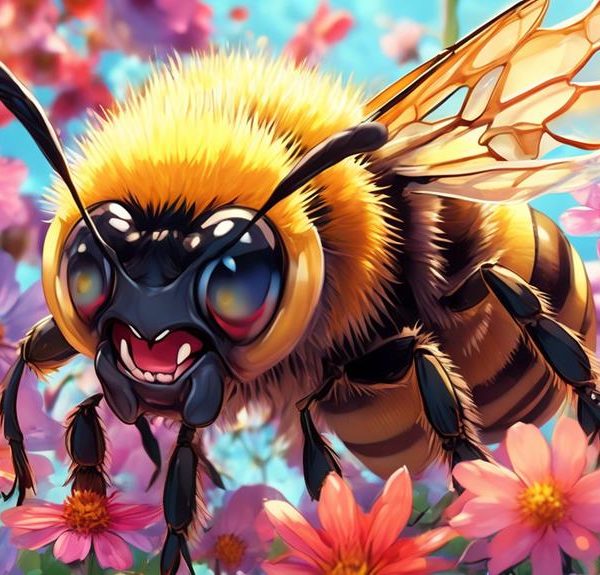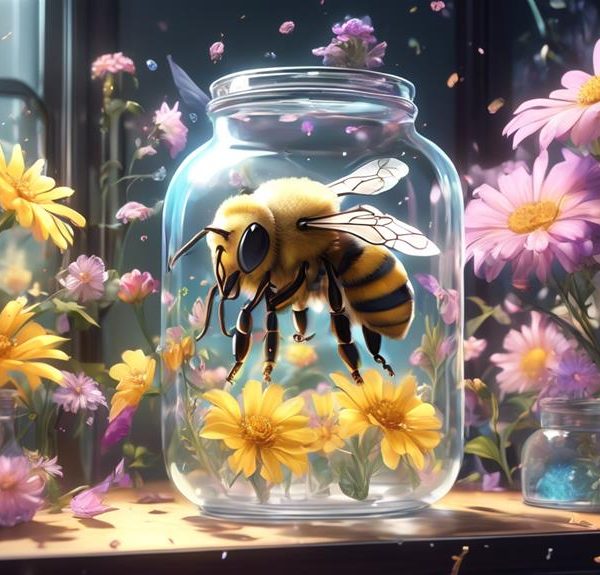Take swift action after swallowing a bee with our life-saving steps and know when it's time to seek professional help.
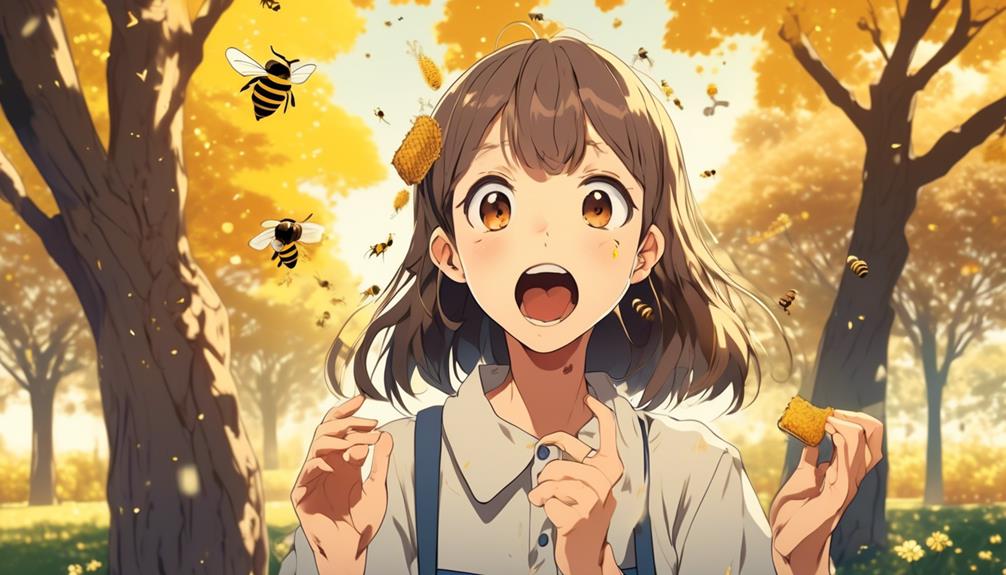
What to Do if You Swallow a Bee?
Imagine you're at a summer picnic, enjoying your favorite fruit salad. Suddenly, you feel an unexpected crunch followed by an unusual stinging sensation in your mouth – you've accidentally swallowed a bee.
This bizarre, and somewhat terrifying, scenario may not be as uncommon as you'd think. So, what do you do next?
You're about to discover some potentially life-saving steps to take, as well as the signs that tell you it's time to seek professional help.
Key Takeaways
- Stay calm and avoid coughing or gagging if you swallow a bee.
- Swallowing ensures that the bee moves to the stomach and reduces the risk of it stinging the throat or causing an allergic reaction.
- Monitor for signs of an allergic reaction and seek medical help immediately if necessary.
- Temporary measures such as soothing the throat with cold water or using an EpiPen for known allergies should not replace medical attention.
Recognizing the Incident
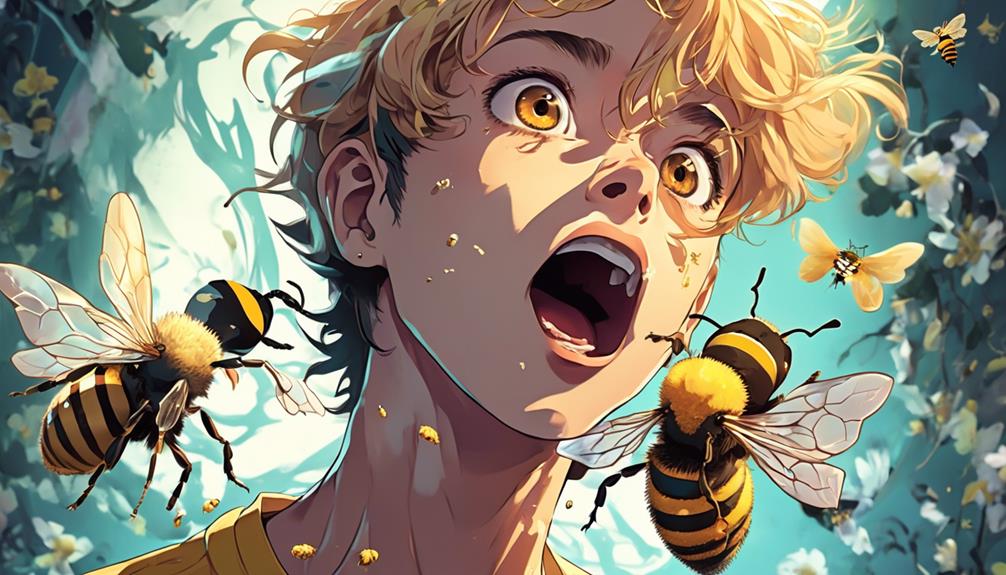
Identifying the moment when you've swallowed a bee can be a startling and potentially dangerous event. The first sign might be a sudden, sharp sting in your mouth or throat. You might also experience an unexpected sour or bitter taste. These are indications that you've accidentally ingested a bee.
It's essential to stay calm. Panic won't help and could potentially worsen the situation. You might instinctively want to cough or gag, but it's important not to force this as it could lead to choking. Instead, try to swallow a few times to ensure the bee has moved down into your stomach where it can't cause any further harm.
You'll also need to monitor yourself closely for any signs of an allergic reaction. These can include difficulty breathing, hives, or swelling around your mouth or throat. If you experience any of these symptoms, seek immediate medical attention.
Immediate Actions to Take
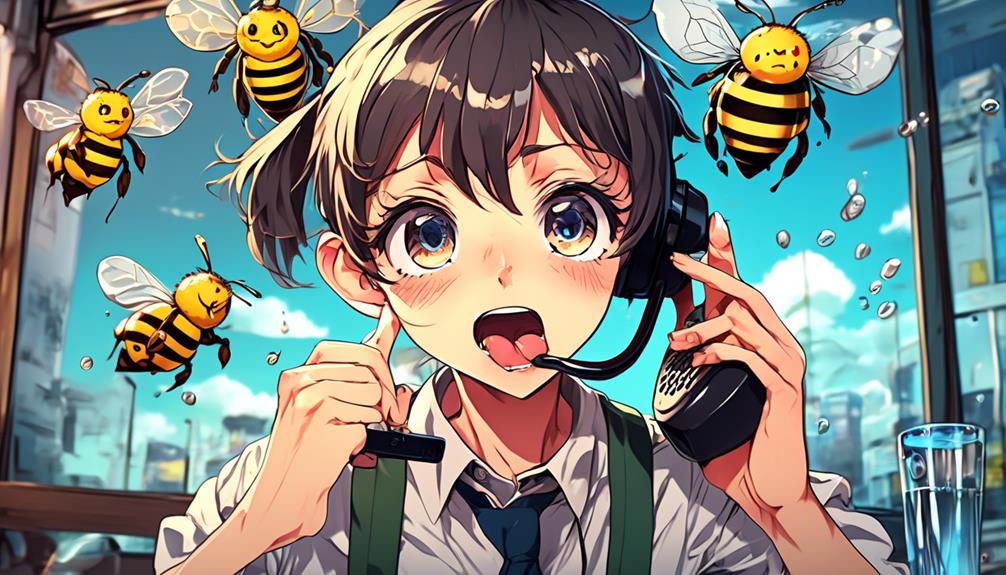
Once you've recognized that you've swallowed a bee, it's critical to take immediate action to prevent further complications. Don't panic, as stress can exacerbate the situation. Stay as calm as you can and focus on breathing normally.
Next, you need to seek medical help immediately. Whether it's calling an ambulance or going to the nearest emergency room, it's crucial to get professional medical attention. Even if you don't feel immediate discomfort, symptoms like swelling in the throat, difficulty breathing, or an allergic reaction may arise later.
While waiting for medical professionals, try to soothe your throat. Sip on cold water or suck on an ice cube. This can help to reduce any swelling and provide a bit of relief. However, remember, these are temporary measures and not a replacement for medical attention.
In case of an allergic reaction, if you've been prescribed an EpiPen for bee sting allergies, use it as directed. Don't hesitate to administer the EpiPen, as delaying can lead to severe complications.
Understanding Potential Reactions
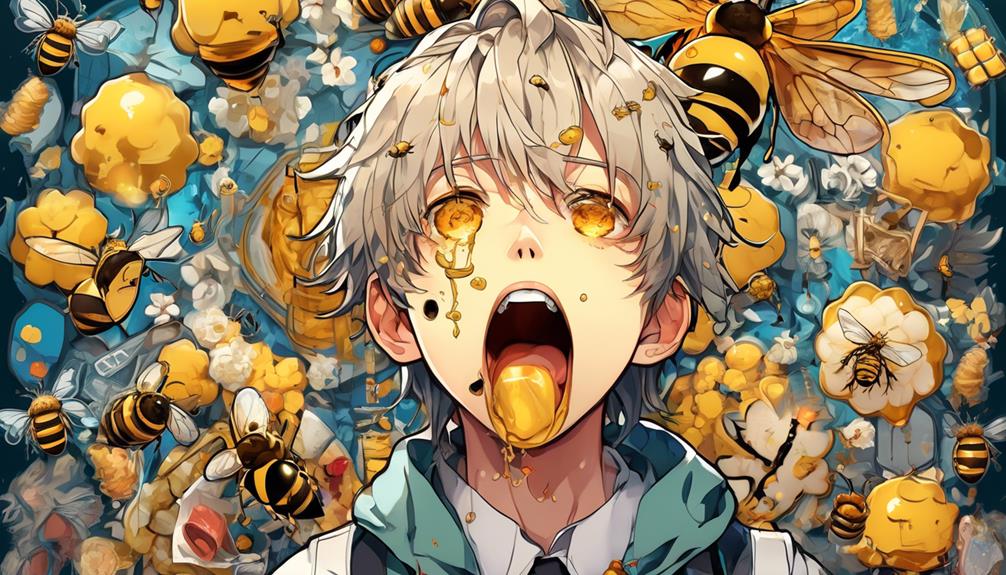
Grasping the potential reactions your body might've after swallowing a bee is crucial for managing the situation effectively. While it's not common, it's possible to experience a range of responses, from mild discomfort to severe allergic reactions.
You're likely to feel an immediate sharp pain in your mouth or throat due to the bee's sting. This could be followed by swelling and redness in the affected area. Difficulty swallowing or breathing, nausea, vomiting, and abdominal pain are also possible. These symptoms typically occur due to the bee's venom, which contains proteins that can cause inflammation and damage tissues.
In rare cases, a severe allergic reaction called anaphylaxis may occur. This is a medical emergency that requires immediate attention. Symptoms include severe swelling of the throat and mouth, difficulty breathing, rapid heartbeat, dizziness, and loss of consciousness. If you're aware that you're allergic to bee stings, you should carry an epinephrine auto-injector with you at all times.
Understanding these potential reactions allows you to act swiftly and seek medical attention if necessary. Remember, it's always better to err on the side of caution when it comes to your health.
When to Seek Medical Help
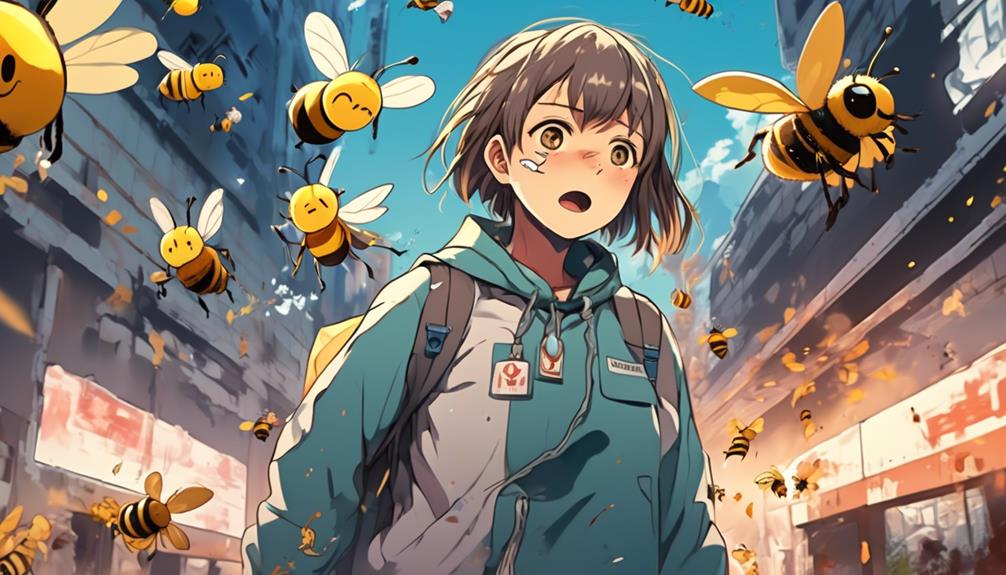
If you've swallowed a bee, it's important to recognize when your symptoms warrant immediate medical attention. While mild discomfort or a sense of unease could be normal, severe reactions should prompt you to act quickly.
Consider seeking help if you're experiencing difficulty breathing, severe swelling in your mouth or throat, intense pain, or any signs of an allergic reaction such as hives, nausea, vomiting, or dizziness. These symptoms may indicate anaphylaxis, a potentially life-threatening allergic reaction that requires prompt treatment.
Should you notice the symptoms are worsening or persisting over time, don't hesitate to contact a healthcare professional. Even if you don't exhibit severe reactions immediately, complications may arise later. A bee sting inside your body can be dangerous, as the venom may cause internal swelling and difficulty swallowing.
In the case of children or elderly individuals who've swallowed a bee, seek medical help immediately regardless of symptoms' severity. Their immune systems mightn't be as robust, making them more vulnerable to the bee's venom.
Tips to Prevent Bee Ingestion

To steer clear of the unnerving experience of swallowing a bee, it's essential to follow a few practical tips and precautions. Bees are most active during the warm months and are attracted to bright colors and sweet scents. Therefore, when you're outdoors, especially in areas with high bee activity, avoid wearing bright clothing or strong perfumes.
Be cautious while eating or drinking outside. Bees are drawn to sugary food and drinks. So, it's best to keep your food covered and always check your drink before taking a sip. Be particularly vigilant if you're enjoying a sweet beverage, as this is a common scenario in which people inadvertently swallow bees.
If a bee does approach you, remain calm and still. Rapid movements can provoke a bee. Remember, bees aren't naturally aggressive and will usually leave if they don't feel threatened.
Frequently Asked Questions
Can Swallowing a Bee Cause Long-Term Health Issues?
While swallowing a bee isn't ideal, it's unlikely to cause long-term health issues. You might experience discomfort, pain, or even a temporary allergic reaction if the bee stings your throat. However, these effects are typically short-lived.
If you're allergic to bee stings and you swallow a bee, it's crucial to seek medical attention immediately. But for most people, there's no need to worry about long-term health consequences.
Is It Possible to Become Allergic to Bees After Swallowing One?
You're unlikely to develop a bee allergy simply from swallowing one. Allergies typically arise from repeated exposure to an allergen, especially through the skin or respiratory system.
However, if you've already got a bee allergy, swallowing a bee might trigger an allergic reaction. It's always advisable to seek medical attention after such an incident, just to be on the safe side.
What Are Some Common Myths or Misconceptions About Swallowing Bees?
You've likely heard some myths about swallowing bees, such as it'll give you superpowers or cause you to buzz like a bee. Others might say you'll develop a bee allergy. These are all misconceptions.
Swallowing a bee is unlikely to give you special abilities or make you allergic. It's typically just a painful and potentially harmful experience, especially if the bee stings your throat.
Always avoid ingesting insects.
Are Certain Types of Bees More Dangerous to Swallow Than Others?
While all bees can pose risks if swallowed, some types may be more dangerous. Africanized bees, known for their aggressive nature, could potentially sting more fiercely.
However, it's important to note that the risk isn't so much about the type of bee, but rather the possibility of being stung in the throat or digestive tract.
If you've swallowed a bee and feel discomfort or difficulty breathing, seek immediate medical attention.
Are There Any Psychological Effects Associated With Swallowing a Bee?
Yes, there can be psychological effects if you've swallowed a bee. You might experience anxiety or panic, especially if you're allergic. The incident could cause a phobia of bees or eating outside.
It's important to speak to a mental health professional if you're struggling. They can provide strategies to manage your anxiety and help you overcome any new fears.
Conclusion
In conclusion, if you accidentally swallow a bee, don't panic. Immediately sip cold water and monitor your symptoms closely.
Mild reactions may include discomfort or temporary swelling, but severe reactions like difficulty breathing warrant urgent medical attention.
To prevent such incidents, always cover your drinks and food when outdoors.
Remember, your knowledge and preparedness can make a significant difference in these rare but potentially serious situations.

